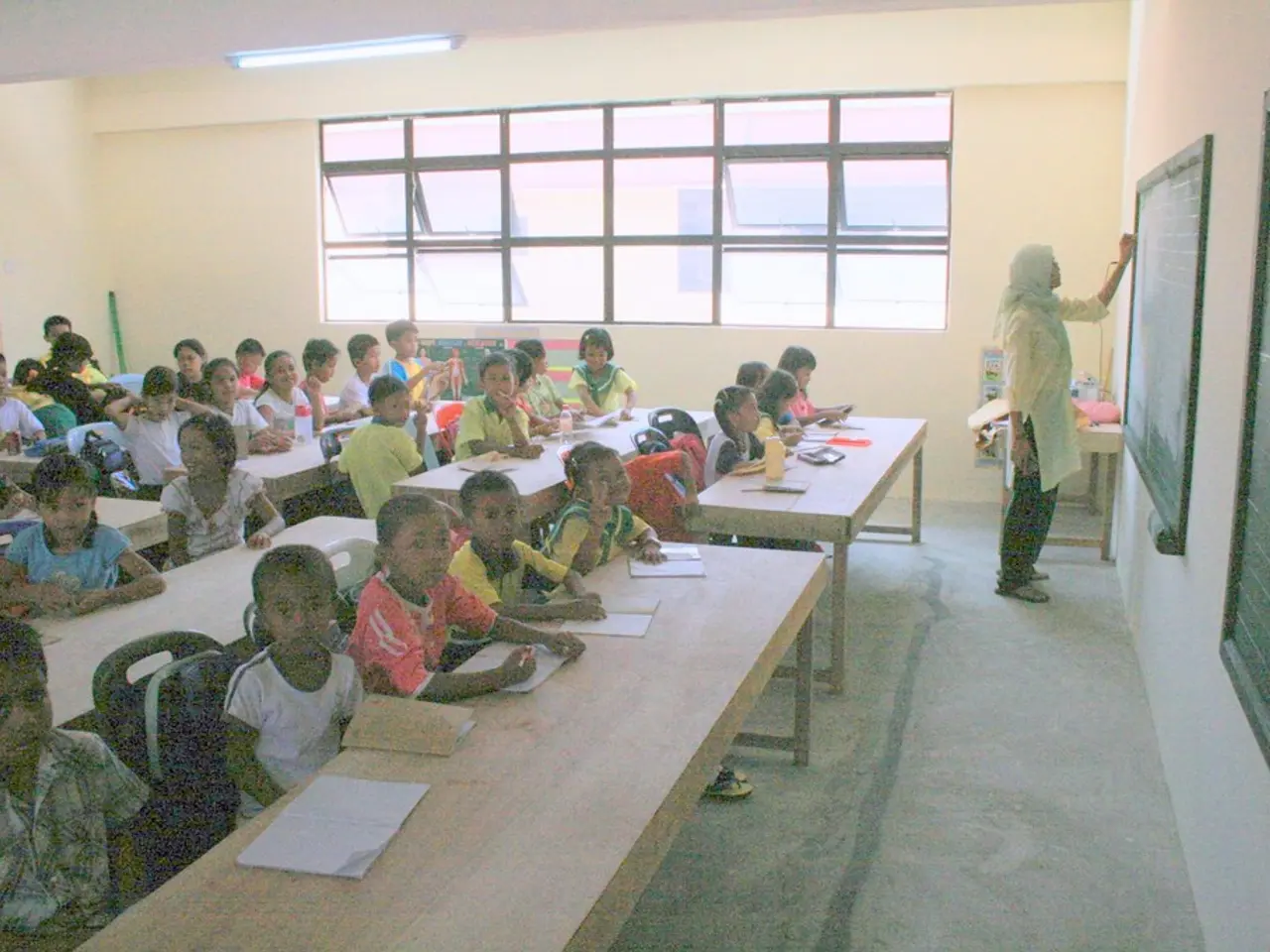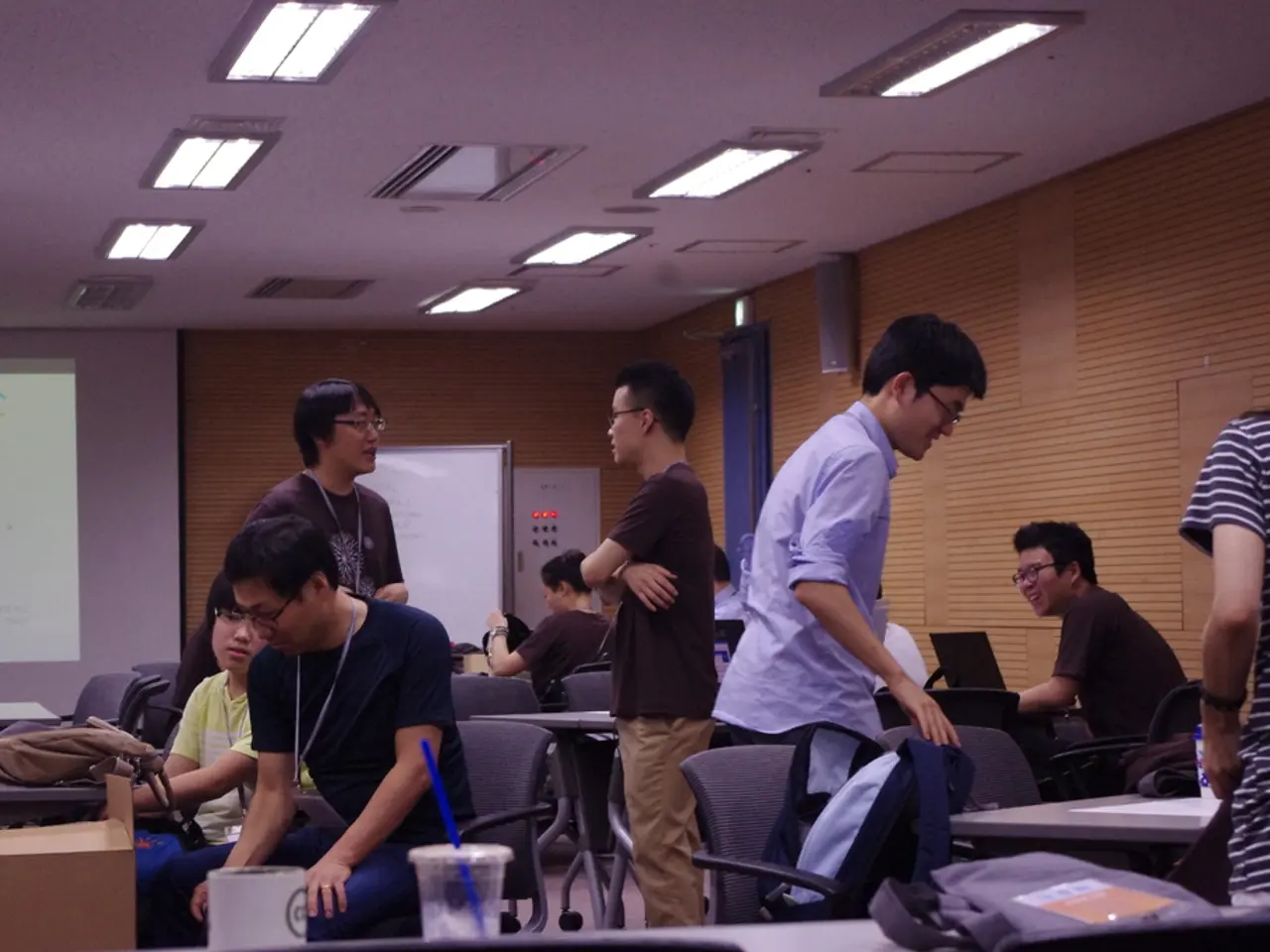Diverse perspectives on school life among pupils, as reported in the findings of the VBE survey
In the realm of education, a significant focus in Germany has been on inclusive education vs. special schools. Recent research underscores the vital role that teachers' attitudes play in the success of inclusive education in regular schools, but there are challenges and specific framework conditions that need to be addressed.
Teachers' Attitudes Matter
Positive attitudes of teachers towards learners with special educational needs (SEN) are crucial for the success of inclusive education in regular schools. Teachers must be willing and able to adapt their teaching methods to cater to diverse learners [1]. However, learners with SEN, particularly those with learning disabilities, often face challenges in the open-ended, flexible learning environments common in inclusive settings. To overcome this, teachers require concrete guidance and training on how to manage heterogeneous classrooms effectively [1].
Building a Supportive Framework
Integrating expertise in inclusive pedagogies into both pre-service (teacher training) and in-service professional development is essential. Collegial exchange among teachers within schools is encouraged to build a shared pool of skills and improve school culture, ultimately benefiting all learners [1]. Pedagogical materials and methods need to be tailored to meet the needs of diverse learners in regular schools, using strategies such as practical activities, multisensory approaches, and real-life contextualization to reduce complexity [1].
While these points refer broadly to inclusive education, ongoing research is being conducted on how teachers notice and respond to diversity in learning needs, particularly in subjects like mathematics education [3].
Supportive Policies and Resources
On the framework level, supportive policies and resource allocation in regular schools are necessary for inclusion to succeed. This includes sufficient training, materials, and collaboration structures within schools [1]. The Ministry of Culture has expanded the number of study places for inclusive education and has referred to a "drastic increase in student numbers in the area of SBBZ, especially in the area of GENT (intellectual development)" [2].
Special Schools and Their Role
Special schools in Germany provide environments tailored specifically to children with particular disabilities or learning difficulties, often with specialized staff and resources. While teachers there may have more focused expertise, they work in segregated settings, which can influence attitudes towards inclusion policies [4].
Survey Results and Teachers' Attitudes
A representative Forsa survey in the southwest of Germany revealed that while the majority of teachers generally support the inclusion of children with disabilities in regular schools, three-quarters of respondents advocate for children with disabilities to attend special schools [5]. The VBE attributes these survey results to poor framework conditions, including a lack of personnel, inadequate equipment, and increasing class sizes [6].
The survey results indicate problems with inclusive education in regular schools, with only 23 percent of respondents finding the current practice practical [5]. However, it's important to note that these results pertain specifically to teachers in the southwest of Germany.
In conclusion, while the attitudes of teachers in Germany reflect a recognition of the importance of inclusion, there is a need for improved training, practical resources, and supportive school frameworks to realise inclusive education in regular schools effectively [1][3]. The focus remains on promoting inclusive education in mainstream settings, backed by positive teacher attitudes combined with structural support.
For more information, Christoph Müller, a representative of the VBE, can be contacted at the phone number 0711 66601-182 and email address c.mueller@our website [6].
[1] Bundesministerium für Kultur und Medien (2021). Schülerinnen und Schülerinnen mit besonderen Lernbedürfnissen in der Schule. [Online]. Available: https://www.bmk.bund.de/en/students-with-special-educational-needs-in-school/
[2] Bundesministerium für Kultur und Medien (2021). Mehr Studienplätze für die Inklusion. [Online]. Available: https://www.bmk.bund.de/en/more-study-places-for-inclusion/
[3] Kühn, H. (2018). Inclusive Mathematics Education: A Review of Research. [Online]. Available: https://www.researchgate.net/publication/326941871_Inclusive_Mathematics_Education_A_Review_of_Research
[4] Deutsche Gesellschaft für Erziehungswissenschaft (2019). Inklusive Bildung. [Online]. Available: https://www.dge.de/de/themen/bildung-und-erziehung/inclusive-bildung/
[5] Forsa (2021). Erhebung zur Inklusion in den Schulen. [Online]. Available: https://www.forsa.de/de/presse/pressemitteilungen/erhebung-zur-inklusion-in-den-schulen/
[6] Verband Bildung und Erziehung (2021). Pressemitteilung: Erhebung zur Inklusion in den Schulen. [Online]. Available: https://www.vbe.de/news/pressemitteilungen/erhebung-zur-inklusion-in-den-schulen/
- After recognizing the importance of inclusive education, it's imperative to amplify teachers' training and provide practical resources to enhance the school framework, fostering an effective realization of inclusive education in regular schools [1].
- The survey results demonstrate that although teachers generally support the inclusion of children with disabilities, structural issues such as a lack of personnel, inadequate equipment, and increasing class sizes need to be addressed to ensure successful inclusive education [5].




